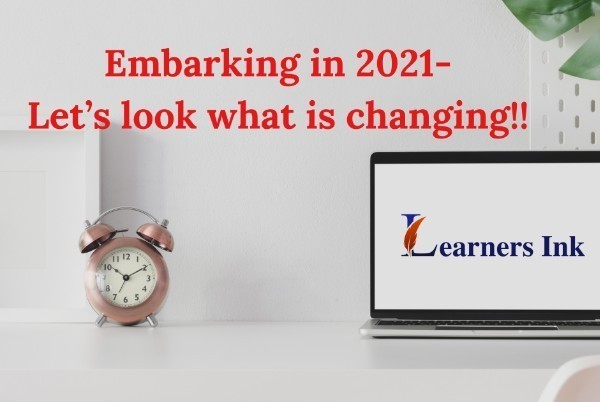Blogs
PMBOK Guide Seventh(7th) Edition Embarking in 2021- Let’s look what is changing!!
PMBOK Guide Seventh(7th) Edition Embarking in 2021- Let’s look what is changing!!

PMBOK
7th Edition highlights
|
Good bye…. |
|
5
Process Groups 10
Knowledge Areas 49
processes Almost
1000 pages |
|
Say Hello !! |
|
12
Project Delivery Principles 8
Project performance Domains Value
Delivery Around
200-300 pages |
Release of PMBOK 7TH Edition
The Project Management Body of Knowledge(PMBOK) is one of the most important resources when getting ready for the PMP Exam. Every few years, PMI updates the PMBOK Guide. This resource is widely viewed as one of the more influential documents in the project management field, so there is an apparent anticipation and speculation around a new version. As per PMI ,PMBOK 7TH edition is scheduled to release by first quarter of 2021.
Why shift from PMBOK 6TH edition to 7TH Edition
In Era of
swift enhancements in technology and rapidly changing landscape ,there is a necessity
for organizations and practitioners to adapt more quickly to Market changes to remain
competitive and deliver value to the customer on time. Until now PMBOK was
primarily focusing on Waterfall Project management techniques which was more
likely Predictive.
With the
fast pace of technology ,ever changing competition ,Practitioners are now
tasked with identifying the right delivery approach of Predictive, Agile or Hybrid
and be prepared to welcome rapidly changing requirements.
The 7th edition of PMBOK recognizes continuous evolution of project delivery methods and practices and condenses them into principles to reflect this flexibility and assist the practitioner in managing the project at hand to deliver outputs that enable envisioned outcomes.
What to expect in PMBOK 7TH Edition?
The most important change in the PMBOK 7th Edition, is that PMI is shifting from a Process-based standard to a Principles-based standard to be more inclusive of the full range of approaches(Predictive, Agile, Adaptive or Hybrid) to value delivery—not just the Predictive approach traditionally associated with project management. The 12 governing Principles provide broad parameters within which project teams can operate and remain aligned with the intent of the Principle.
There were Knowledge Areas,
Processes, ITTOs in previous and current PMBOK versions. The seventh edition of
the PMBOK guide is structured not around Knowledge Areas and Processes and
ITTOs but around Project Performance Domains , In PMBOK 7th Edition, projects
do not only produce Products or Deliverables. Projects deliver Outcomes
and these Outcomes bring value to the organization and its stakeholders.
This does not mean that process-based approaches are not relevant or useful anymore. Many organizations and project management practitioners may continue to use conventional project management delivery methods. Conventional approaches remain relevant in the context of PMBOK 7th Edition as well.
Knowledge areas will not be existing in PMBOK anymore. There will be performance domains. There will be a new digital platform: Standards Plus linked to PMBOK. This platform will show current, emerging, and future project delivery practices for the use of project practitioners.
PMBOK Guide 6th Edition comprises two distinct sections, A Guide to the Project Management Body of Knowledge as well as The Standard for Project Management, in that order. This order will change in the PMBOK 7th Edition and The Standard for Project Management will now appear before A Guide to the Project Management Body of Knowledge.
Benefits of paradigm shifting to 7TH Edition
The processes in the current Edition show inputs, tools and techniques, and outputs (ITTO’s) associated with each process. These processes used in the 6th Edition lean more towards predictive or waterfall approach. PMI research shows that many projects today are using some form of Agile or Hybrid approach, so there is a definite need to shift away from the process-based way of presenting not only the Guide, but also the Standard.
Shift to Principle-based format, Value Delivery and Standard Plus reflects foundational principles of our practice, rather than a prescriptive approach. This new format would be able to better reflects & serve current and future practitioners’ needs and will remain relevant as practitioners identify the most appropriate approaches to bringing about intended outcomes.
It will support any type of Project Delivery -in short shifting towards Agile Paradigm. The focus is on project outcomes than just the project deliverables. PMBOK scope is widened to not just include the project management approaches, but also focus is also widened – to include project Outcomes.
New
digital format also will enable easier access, more options for providing
feedback, shorter update cycles, and new original content by subject matter
experts. It will provide access to a richer, deeper set of resources to put the
standards into practice with tools and techniques for managing various aspects
of project management.
Recent Blogs
Check out our others blogs
Extra $ Discount
Enroll Now to avail 20% Off on Prince2 Foundation & Practitioner Course
Copy Coupon Code: PRINCE20
